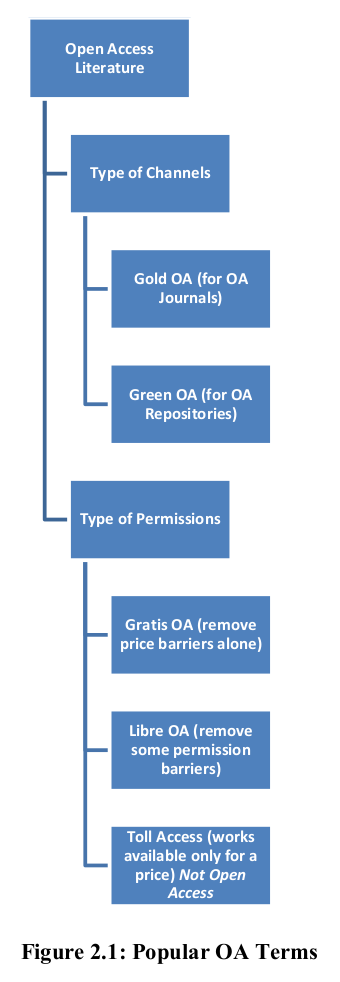2.2 Open Access – Definition
Open access to knowledge is a generic term used for knowledge resources made available in the public domain for public access or public consumption at large scale, without any hindrance of subscription fee or access charges. OA is facilitated in an internet-based online environment. Thus, OA facilitators as well as users need to establish an online connectivity for knowledge diffusion. Internet services are designed for global as well as local users. User interfaces and languages of scholarly communications are to be suitable for global users for achieving fruits of OA.
Peter Suber (2012) defines OA “Open Access literature is digital, online, free of charge, and free of most copyright and licensing restrictions”. He further elaborates terminologies used in popular OA movement, as shown in Figure 2.1.
The OA movement uses the term Gold OA for OA delivered by journals, regardless of the journal’s business model, and Green OA for OA delivered by repositories. Self-archiving is the practice of depositing one’s own work in an OA repository. All three of these terms were coined by Stevan Harnad.
Work that is not open access, or that is available only for a price, is called Toll Access (TA). ... While every kind of OA removes price barriers, there are many different permission barriers we could remove if we wanted to. If we remove price barriers alone, we provide Gratis OA, and if we remove at least some permission barriers as well, we provide Libre OA.

